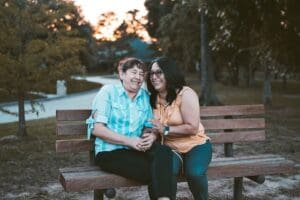Caregiver Support Groups in Georgia: A Comprehensive Guide
Caring for a loved one, especially when they’re suffering from a serious illness or disability, can often be challenging, emotionally draining, and at times, isolating for family caregivers. However, it’s important to remember that you are not alone in this journey. There are numerous caregiver support groups available across Georgia that offer emotional, educational, and social support. These resources help caregivers manage stress, make critical decisions, and navigate the healthcare system more effectively.

Available Programs for Caregivers in Georgia
The Division of Aging Services in Georgia offers several programs for caregivers of older adults, including information and assistance services, adult day care, legal assistance, and nutrition services. These programs are designed to provide caregivers with the resources they need to effectively care for their loved ones while also taking care of their own health and well-being.
In addition to these state-sponsored initiatives, AARP provides a comprehensive list of Family Caregiver Resources in Georgia, including Meals on Wheels services in Augusta and Atlanta. This service delivers nutritious meals to seniors and disabled individuals who are unable to prepare their own meals, providing relief to caregivers and ensuring their loved ones receive proper nutrition.
Support Groups for Specific Conditions
There are also support groups tailored to caregivers of individuals diagnosed with specific conditions. For instance, for caregivers of individuals diagnosed with frontotemporal dementia, there are monthly support group meetings organized by the Georgia Chapter of the Alzheimer’s Association. These meetings take place on the 2nd Tuesday of each month from 6:30-8:00 PM at Wesley Woods Hospital. Here, caregivers can connect with others facing similar challenges and learn from experienced professionals about how to best care for their loved ones.
Moreover, NAMI Northside Atlanta is another valuable resource for family members and caregivers, offering supportive YouTube videos and a helpline. They provide education about mental illnesses and practical strategies for handling common issues and challenges faced by family member caregivers.

Caregiver Support Groups in Atlanta
Atlanta, being the state’s largest city, has a wealth of resources for both families and caregivers. The Central Congregational United Church of Christ coordinates caregiver support groups with certified counselors present. These meetings provide an opportunity for caregivers to share their experiences, learn from each other, and gain emotional support in a safe and welcoming environment.
The Empowerline, another great resource for caregivers, offers both online and telephone-based educational topics, counseling, and caregiver support groups. Their services range from assisting with healthcare decision-making to providing emotional support and coping strategies.
Oaks Senior Living also conducts care partner support groups throughout their Atlanta locations. These groups provide a platform for caregivers to share their experiences, learn from each other, and gain emotional support.
Additionally, Hospice Savannah offers caregiver classes and support groups free of charge, although they do accept donations. These classes can help caregivers understand the end-of-life process and equip them with the skills needed to provide compassionate and effective care.

Dementia Education & Support Program
Piedmont’s Sixty Plus program sponsors monthly caregiver support groups. These groups provide emotional support and practical information to family and friends caring for those with dementia. The program helps caregivers better understand dementia and equips them with the knowledge and skills needed to provide quality care.
In summary, caregiver support groups in Georgia offer a lifeline to those who may feel overwhelmed by their caregiving responsibilities. These groups provide a sense of community, a space to share personal care and experiences, and access to practical resources and advice.
Remember, it’s okay to seek help, understanding and support. You don’t have to face these challenges alone. Reach out to these resources, connect with others in similar situations, and make your caregiving journey a little less daunting.
